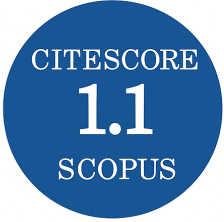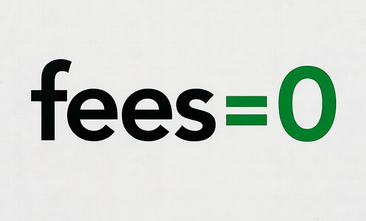Analysis of Pilot’s Cognitive Overload Changes during the Flight
DOI:
https://doi.org/10.3849/aimt.01408Keywords:
cognitive overload, flight simulator, flight timeAbstract
In this article, the research aimed at determining the impact of the intensification of actions on the pilot’s cognitive load in a simulated flight is presented. The tests were divided into two groups: pre-flight verification tests and flight tests of increasing intensity. The work was carried out at flight simulator CKAS MotionSim5. Based on the collected data, it has been proved that along with the intensification of the tasks imposed on the pilot, the level of his cognitive load also increases. Further inference leads to the conclusion that cognitive overload is one of the main reasons for pilots’ mistakes. The linear relationship between experience and cognitive load has also been proven in the studied group.
References
KOZUBA, J. and BONDARUK, A. Flight Simulator as an Essential Device Supporting the Process of Shaping Pilot’s Situational Awareness [online]. In Proceedings of the International Conference of Scientific Paper. Brasov, 2014, p. 695-714. [viewed 2020-01-15]. Available from: http://www.afahc.ro/ro/afases/2014/forte/Kozuba.pdf
KOZUBA, J., KRAWCZYK, J. and KORYTEK, Ł. The Impact of Air Traffic Increases on the Safety of Air Operations in the Polish Airspace. Scientific Journal of Silesian University of Technology, 2018, vol. 98, p. 53-63. https://doi.org/10.20858/sjsutst.2018.98.6.
KOPYT, A., PIOTROWSKI, M. and BIERNACKI, M. The Study on the Mental Stress Impact on Pilots on the PZL SW-4 Flight Simulator (in Polish) [online]. Prace Instytutu Lotnictwa, 2014, vol. 3, no. 236, p. 26-34. [viewed 2020-02-01]. Available from: http://yadda.icm.edu.pl/yadda/element/bwmeta1.element.baztech-cca83f60-bffc-4e8b-afe8-b88565911109
MENG, F., LI S., CAO L., LI M., PENG Q., WANG C. and ZHANG W. Driving Fatigue in Professional Drivers: a Survey of Truck and Taxi Drivers. Traffic Injury Prevention, 2015, vol. 16, no 5, p. 474-483. https://doi.org/10.1080/15389588.2014.973945.
GALANT, M., MERKISZ, J., KARDACH, M. and MACIEJEWSKA, M. Diversification of Aviation Safety Management on the Basis of Differences between GA and CAT. Journal of KONBiN, 2019, vol. 49, no. 2, p. 139-160. https://doi.org/10.2478/jok-2019-0029.
GALANT, M. and MERKISZ, J. Analysis of the Possibilities of Using EEG in Assessing Pilots’ Psychophysical Condition, Scientific Journal of Silesian University of Technology, 2017, vol. 95, p. 39-46. DOI 10.20858/sjsutst.2017.95.4.
GALANT, M., SOKOLNICKA, B., SZYMLET, N. and MERKISZ, J. Risk Assessment for Flight in Uncontrolled Airspace under Visual Flight Rules. Journal of KONBiN, 2019, vol. 49, no. 3, p. 401-419. https://doi.org/10.2478/jok-2019-0064.
ŁAZOWSKA, E., NIEZGODA, M. and KRUSZEWSKI, M. Drivers’ Cognitive Workload (in Polish) [online]. Transport Samochodowy, 2014, vol. 2, p. 73-82. [viewed 2020-02-02]. Available from: http://yadda.icm.edu.pl/baztech/element/bwmeta1.element.baztech-a5a276a0-02b5-4d82-af19-de8853e2a5d6
MERKISZ, J., GALANT, M. and BIEDA, M. Analysis of Operating Instrument Landing System Accuracy under Simulated Conditions. Scientific Journal of Silesian University of Technology, 2017, vol. 94, p. 163-173. https://doi.org/10.20858/sjsutst.2017.94.15.
NĘCKA, E., ORZECHOWSKI, J. and SZYMURA, B. Cognitive Psychology. Warsaw: PWN, 2013, 739 p. ISBN 978-83-01-17468-2.
MACIEJEWSKA, M., FUĆ, P., GALANT, M. and KARDACH, M. Use of Faultlessness Indicator to Rate Human Reliability in Human – Operating Aircraft System. Journal of KONBiN, 2019, vol. 49, no. 1, p. 107-115. https://doi.org/10.2478/jok-2019-0006.
NOWAK, M., JASIŃSKI, R. and GALANT, M. Implementation of the LTO Cycle in Flight Conditions Using FNPT II MCC Simulator. IOP Conference Series: Materials Science and Engineering, 2018, vol. 421, no. 4, 042060. https://doi.org/10.1088/1757-899X/421/4/042060.
GALANT, M., NOWAK, M., KARDACH, M., MACIEJEWSKA, M. and ŁĘGOWIK, A. Using the Simulation Technique to Improve Efficiency in General Aviation. In Proceedings of the AIP Conference. 2019, vol. 2078, no. 1, 020097. https://doi.org/10.1063/1.5092100.
BĄK, J. and BĄK-GAJDA D. The Psychological Factors Affecting Reaction Time of the Driver (in Polish). Proceedings of the Institute of Vehicles, 2013, vol. 5, no. 96, p. 21-30.
VELTMAN J.A. and GAILLARD A.W. Physiological Indices of Workload in a Simulated Flight Task. Biological Psychology, 1996, vol. 42, no. 3, p. 323-342. https://doi.org/10.1016/0301-0511(95)05165-1.
Downloads
Published
License
Copyright (c) 2020 Advances in Military Technology

This work is licensed under a Creative Commons Attribution-NonCommercial 4.0 International License.
Authors who publish with this journal agree to the following terms:
1. Authors retain copyright and grant the journal right of first publication with the work simultaneously licensed under a Creative Commons Attribution License that allows others to share the work with an acknowledgement of the work's authorship and initial publication in this journal.
2. Authors are able to enter into separate, additional contractual arrangements for the non-exclusive distribution of the journal's published version of the work (e.g., post it to an institutional repository or publish it in a book), with an acknowledgement of its initial publication in this journal.
3. Authors are permitted and encouraged to post their work online (e.g., in institutional repositories or on their website) prior to and during the submission process, as it can lead to productive exchanges, as well as earlier and greater citation of published work.
Users can use, reuse and build upon the material published in the journal for any purpose, even commercially.






